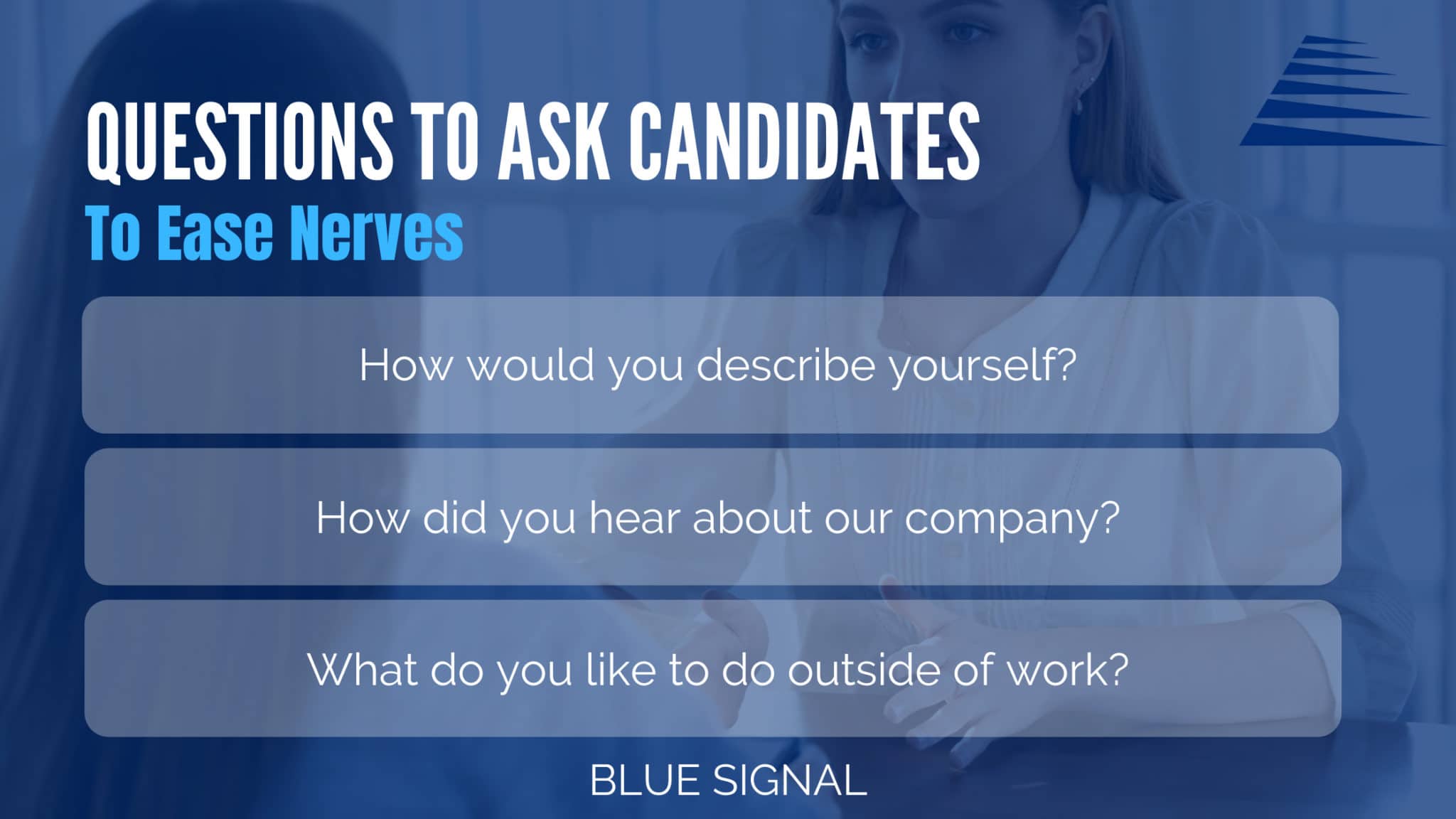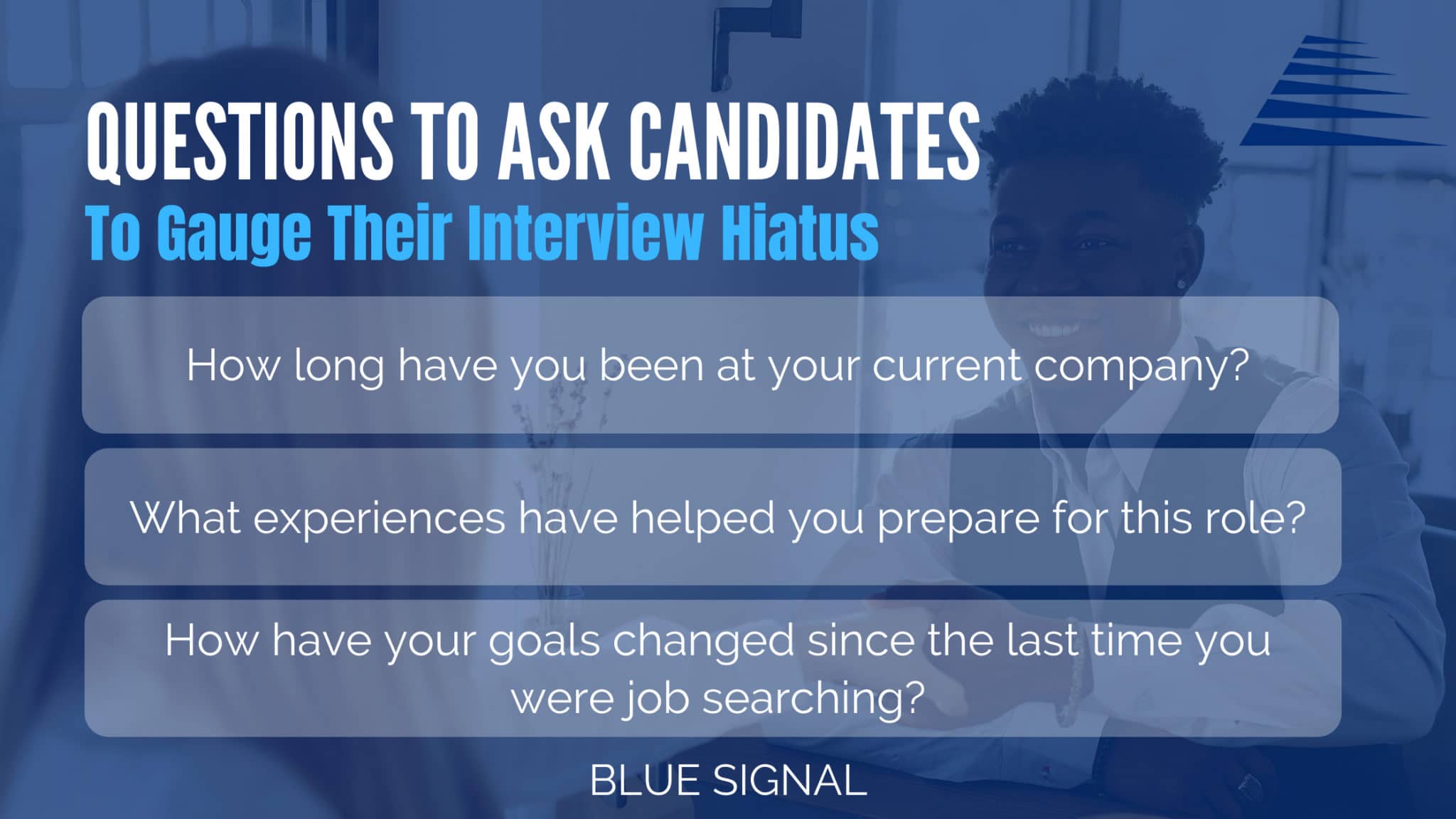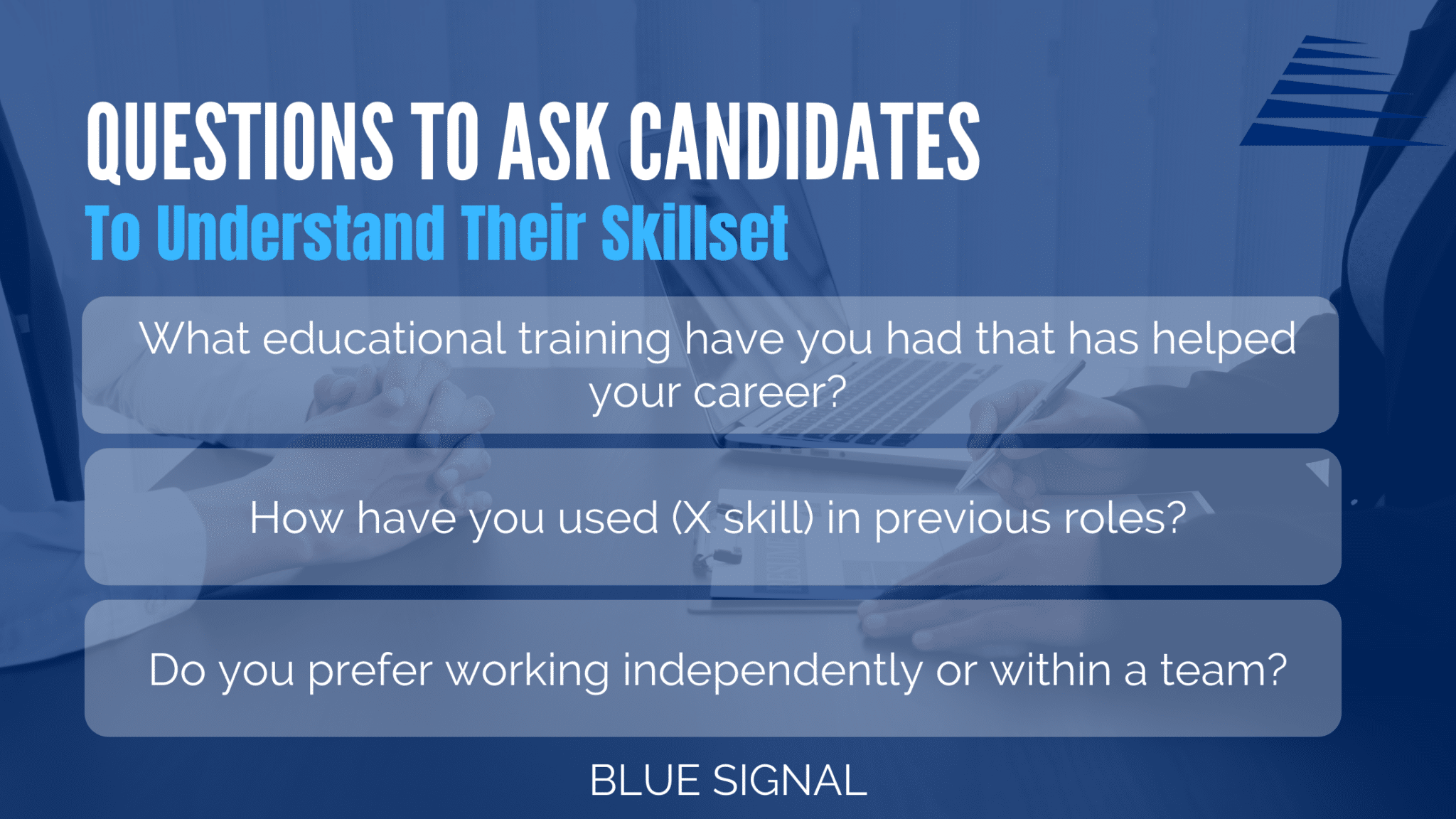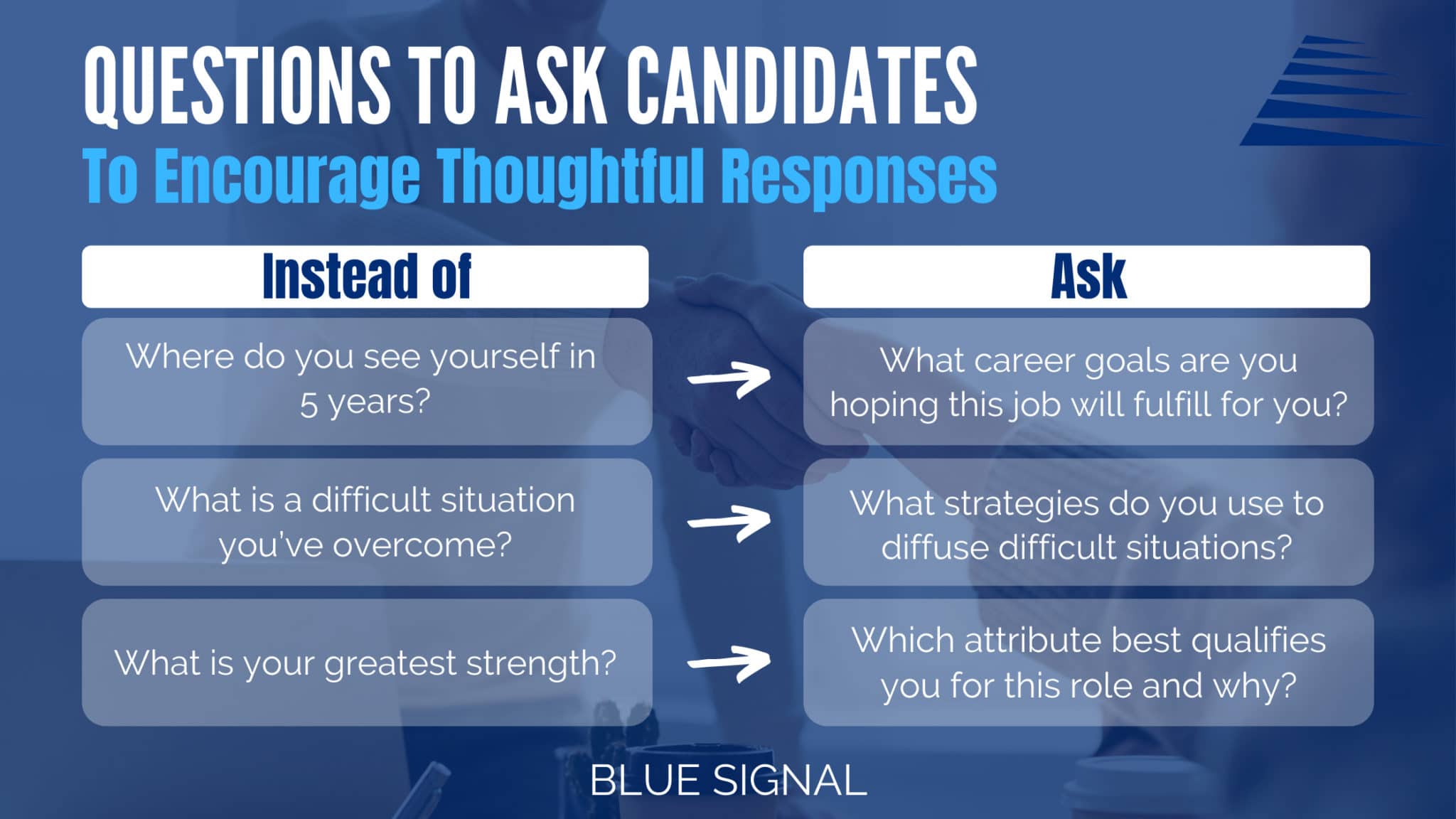In the recruiting and staffing space, we’ve all seen perfect-on-paper candidates deliver bad interviews. Despite having the ideal qualifications and experience, their interview performance ranged anywhere from lackluster to downright terrible. However, interviews are not the tell-all of how candidates will perform in the role. It’s important to not judge a book by its cover – good candidates can give bad interviews, and bad candidates can give good interviews. Taking into consideration that the average cost of a bad hire is up to 30% of the employee’s first year compensation, it’s important to hire the right people – not just the ones that interview well. As a hiring manager, it’s crucial to recognize the signs of good candidates having bad interviews, and vice versa. Consider the following factors to understand why bad interviews happen to good candidates.
Bad Interviews Can Happen Because They’re Nervous
Interview nerves are common, whether it’s from public speaking anxiety or even pure excitement about the opportunity. Regardless of preparation, interview anxiety can make a candidate appear less confident – they may stumble over their words, speak too fast, fidget with their hands/hair, or appear disorganized. These things can lead to cause for concern from an interviewer’s perspective and result in a bad interview overall.
What To Do as the Interviewer
Ease the candidate’s nerves in the very beginning by assuring the interview will be more of an open conversation than a test. The more relaxed a candidate feels, the more likely they will give honest and clear answers. You can alleviate tension in the beginning of the interview by asking open-ended questions that make the candidate feel more comfortable, such as asking about themselves, how they heard about the role, or their interests outside of work. Breaking the ice with these questions will ease the candidates’ nerves and encourage them to be their authentic selves. Lastly, don’t make a snap judgement. Allow the interview to run its course and give the candidate time to open up and relax. Judge the interview holistically, rather than passing judgement based on the first three minutes.
Questions To Ask Candidates To Ease Nerves:
- How would you describe yourself?
- How did you hear about our company?
- What do you like to do outside of work?

Their Interview Skills are Rusty
A stable job history is an important factor to consider during the hiring process to weed out job-hoppers. Committed job candidates can go anywhere between 2-10 years between interviews, almost guaranteeing rusty interviewing skills. Passive candidates may also be out of practice because they aren’t actively looking for a new role. Interviewing skills are like learning a new language, it takes practice and consistent refinement. Thus, those who haven’t interviewed in a while may find themselves re-learning the ropes.
What To Do as the Interviewer
Look at their employment history and recognize the time that has passed between the last time they interviewed; this could be their first time interviewing – virtually or in-person – since the pandemic. To gauge their interviewing hiatus, you could ask how their job search is going so far, how their 5-year plan has changed since the last time they interviewed, or how the scope of their current role has changed since they were hired.
Remember that interview nerves are expected, and may be amplified if they haven’t interviewed in a while. Interview nerves and out-of-practice interview skills are a lethal combination for bad interviews, even if the candidate is highly qualified for the role. On the same note, be wary of overly confident candidates – memorized responses that include fluff and exaggerated buzzwords may be an indicator of a serial interviewer. Be sure to dive deep into candidates’ answers and ask about specific accomplishments or tasks in their previous roles.
Questions To Ask Candidates To Gauge Their Interview Hiatus:
- How long have you been at your current company?
- What experiences have helped you prepare for this role?
- How have your goals changed since the last time you were job searching?

Their Job Skillset Doesn’t Translate to Interviewing
The skillset required for interviewing can sometimes be very different than the skillset needed for the job. A standard interview process judges a candidate’s ability to sell themselves for the role, which requires excellent communication and people-facing skills. This could easily be exemplified for someone in management or sales roles. However, depending on the candidate’s field, this may not be their expertise. Those who are in engineering or IT roles may possess the technical skills for the role, but could have a hard time translating it during an interview since they may not interface with people regularly.
What To Do as the Interviewer
It’s important to recognize the difference between an interviewing skillset and the skillset required for the role. Take into consideration the candidate’s field and how communication skills are involved. Focus on the job requirement and tailor questions to highlight the candidate’s skills and experience in that area. For example, pose questions about the candidate’s background, relevant certifications or degrees, how they’ve utilized their skillet in previous roles, or specific projects they’ve worked on. Let the candidate sell themselves through explanation of skills, rather than their delivery of answers.
Questions To Ask Candidates To Understand Their Skillset:
- What educational training have you had that has helped your career?
- How have you used (X skill) in previous roles?
- Do you prefer working independently or within a team?

They’re Being Asked the Wrong Questions
As the interviewer, you’re responsible for determining if the candidate is the right fit for the role by asking questions that speak to both their technical skills and personality. If the candidate isn’t engaged in the interview or is answering unclearly (and it can’t be attributed to the things mentioned above), it might be worth looking introspectively. Are the questions you’re asking the cause of these bad interviews?
What You Can Do as the Interviewer
If applicable, set up a pre-interview call with the candidate’s recruiter. This will allow you to gather details about the candidate you can specifically ask about during your interview. Next, review your interview questions. Do they specifically target the skills needed for the role? Are they relevant to this candidate’s experience? How do they assess the candidate’s cultural fit? Are they open-ended, allowing for a natural flow of conversation?
That being said, it’s always better to ditch the script once the interview is off and running. Allow the conversation to naturally spark new questions that’ll give you a deeper understanding of the candidate’s experience and skills. This will also give the candidate a better opportunity to showcase their achievements, work ethic, and personality the way they want to.
Questions To Ask Candidates To Encourage Thoughtful Responses
- Instead of “Where do you see yourself in 5 years?” ask “What career goals are you hoping this job will fulfill for you?”
- Instead of “What is a difficult situation you’ve overcome?” ask “What strategies do you use to diffuse difficult situations?”
- Instead of “What is your greatest strength?” ask “Which attribute best qualifies you for this role and why?”

Red Flags in Bad Interviews
If you notice any of the red flags below during an interview, it may be a sign that your candidate is a wolf in sheep’s clothing. Be wary of these signs and utilize them to determine if a candidate gave a bad interview from the reasons mentioned above, or if they truly aren’t the right fit.
Vague examples: If the candidate uses examples without quantifiable achievements, they may be all talk and no action.
Highlighting the negative: Highlighting the negative in previous roles or employers could be a warning sign that they are likely going to continue that behavior at your company.
Lack of goals: Having a lack of goals signifies a lack of motivation. If a candidate doesn’t have career or personal aspirations, they’re less likely to contribute to your company’s goals.
Defensive response and body language: Candidates that have defensive responses and body language during interviews are likely to have a problem with authority and criticism. Make sure that their work ethic will mesh well with your management style.
Self-centric answers: This is particularly important for candidates that will be working on teams. If a candidate only focuses on self-accomplishments and successes, their ego may become a problem. Recognize the difference between confidence and arrogance.
What You Can Do as a Hiring Manager to Mitigate Bad Interviews
The hiring process can reveal a lot about future employees, but it’s important to consider that great candidates can be shadowed by bad interviews. As a hiring authority, it’s vital to take into consideration the potential factors driving bad interviews – nerves, out-of-practice interview skills, non-transferable skillets, or monotonous interview questions. If you feel like the candidate could still be a fit after the first interview, set up another time to meet with them. As the hiring process progresses with a well-suited candidate, the factors listed above should vanish. However, if the bad interviews can’t be attributed to those factors, you need to be wary of the interview red flags that may indicate an avid job hopper. Set your potential candidates up for success by acknowledging these components and tailoring your interview process for optimal results.
If you need guidance on the interview process or additional resources for effective interviewing, reach out to Blue Signal. As your partner in the hiring process, our recruiting team is positioned to support both hiring managers and candidates through the process. With our help, quality candidates are guaranteed to shine through, without the headache of enduring bad interviews.


